Grain is practically a 4-letter word these days.
More than ever, there’s public awareness (and confusion) about issues with gluten, excess carbohydrates, lectins, phytates, intensive farming practices, pesticide residues, genetic modification, and a slew of other potential issues with grains.
If you happen to feel better eating fewer grains (or none at all), then nothing should stop you from sticking with that way of eating.
However, that logic seems to change when you get pregnant.
All of a sudden, you’re given pamphlets on prenatal nutrition that claim you need “6 or more servings of grains per day” and encouraged to eat fortified cereal to get enough carbohydrates, folic acid, iron, and fiber.
Or maybe you were told “you’re pregnant, you should be eating for two, not worrying about food so much!”
Even the American Pregnancy Association says this:
The body’s main source of energy for pregnancy comes from the essential carbohydrates found in breads and grains. Whole grain and enriched products provide important nutrients such as iron, B Vitamins, fiber and some protein, even. You can also get the required amount of folic acid from fortified bread and cereal. Depending on your weight and dietary needs, you should consume anywhere between 6-11 servings (6-11oz) of breads/grains daily.”
I beg to differ.
Whatever your current stance on grains, I think you deserve to know the truth about the safety (and potential risks) of ditching grains during pregnancy. As I’ve explained, I think it’s time we review outdated prenatal nutrition guidelines.
So, is avoiding grains safe during pregnancy?
For my personal take on this controversial topic, check out my guest post for Carol Lovett of the popular blog, Ditch The Wheat.
I cover whether there’s merit to the most common warnings against going grain-free during pregnancy, including:
- How will you get enough fiber?
- Where will you get your folate/folic acid?
- BUT, you won’t get enough B-vitamins!
- What about iron? Cereal is a great source of iron!
- Where will you get your carbohydrates? Going low-carb is unsafe in pregnancy! (This particular point is explained in more scientific detail in my guest post for the Low Carb Dietitian.)
Read the full article HERE.
I also share some cautions before committing to going 100% grain-free, including some adjustments you may want to make to your diet to ensure you’re getting the right balance of nutrients for your unique needs.
For example, some women may thrive on a lower carbohydrate diet during pregnancy, while others will do better replacing the carbohydrates they would be getting from grains with other foods. On the other hand, women with gestational diabetes or who benefit from a slower rate of weight gain, may do particularly well on a lower carb diet.
That’s why the meal plans in my book, Real Food for Gestational Diabetes, show a range of carbohydrate levels, so you have the information to choose which is best for you (and further customize your diet beyond my suggestions).
After all, I truly believe your body knows best!
In the comments below, I’d love to hear your thoughts:
- Do you feel better limiting or avoiding grains? How so?
- Have you considered going grain-free during pregnancy? Were you warned against it?
Until next week,
Lily
PS – Please note I have no interest in arguing the already over-discussed topic of whether everyone should go grain-free or gluten-free. This is a personal decision that you have the right to make for yourself and, as always, there is no one-size-fits-all answer.
If you’re on the fence, I kindly suggest you read this article about gluten sensitivity & wheat allergy, consider an elimination diet to see how you respond (as outlined in my free ebook, 30 Days to a Happy Tummy), or opt for food sensitivity testing to accurately identify any foods that are problematic.

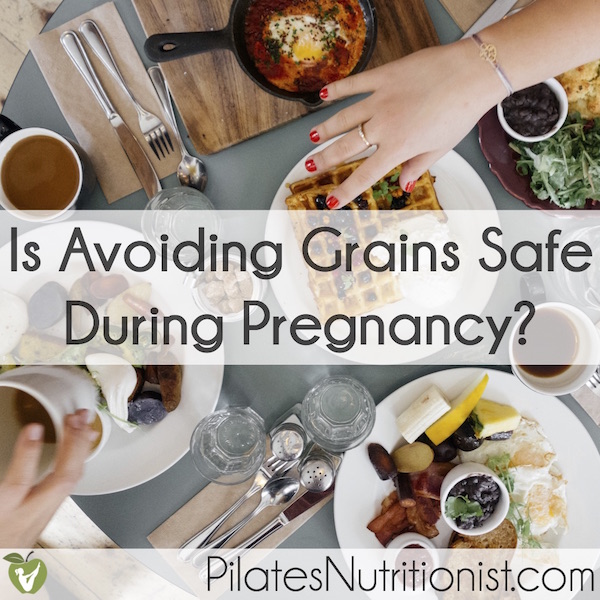

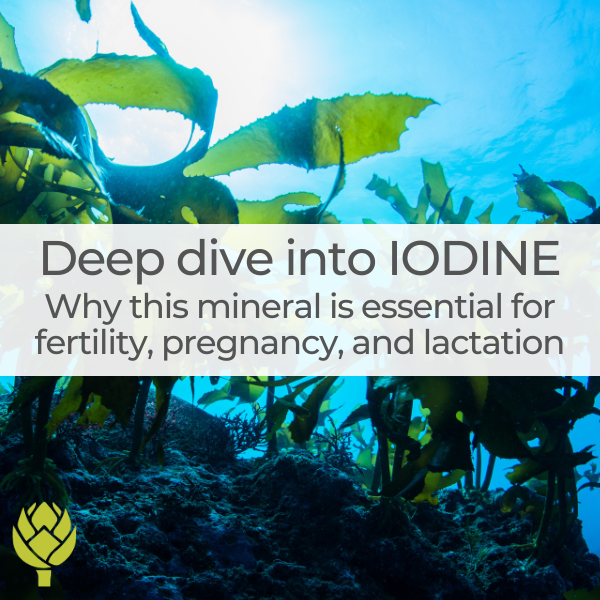
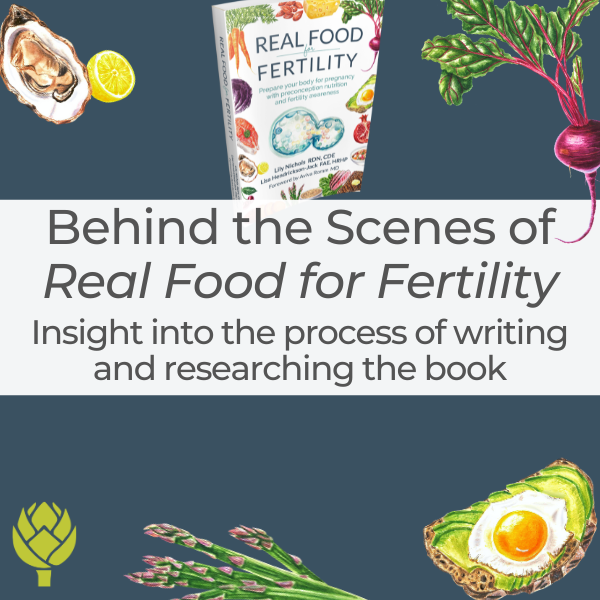
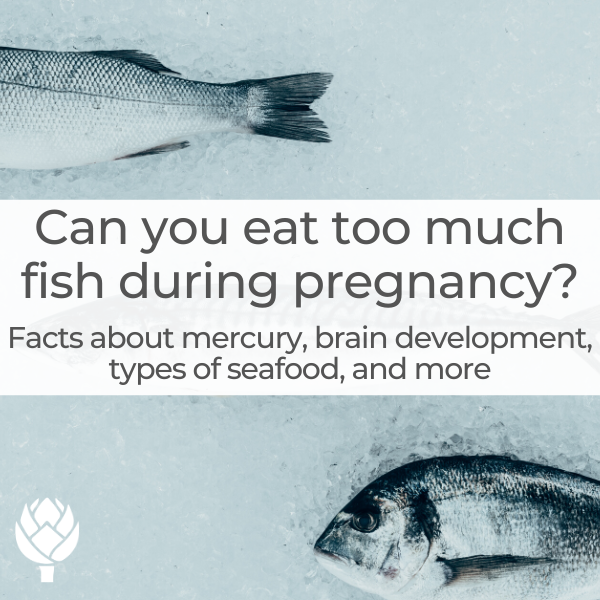
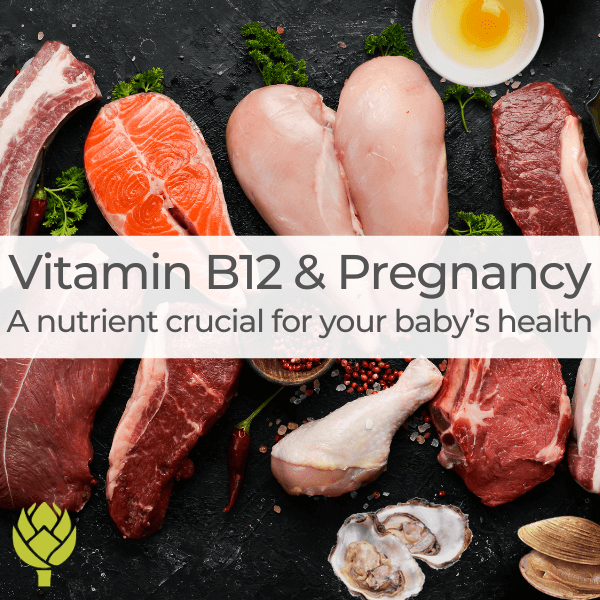



I wonder, how would grains be bad for your health while nature has given us grains to eat? If these are 100% natural, then they are good for your health?
Nature didn’t give them to you to eat. Nature grows ALL kinds of things that are toxic to humans. Not everything that is growing on the Earth is good for you. Your logic makes no sense whatsoever.
I’m a very longterm paleo/primal (dairy included) dieter that is planning on introducing some selected soaked/fermented grains for allergen purposes when I’m pregnant, based on your recommendations. I can’t make my kids’ dietary decisions for them, and I don’t want them to be so limited in their food choices (especially with climate change on the horizon, to be frank!). I don’t plan on doing wheat (I tolerate it awfully), but I tolerate wild rice and quinoa fine, and I’ll probably selectively eat some soaked/fermented ancient grains. If there’s a big enough audience for this, I’d love to see a blog post on how to do it well, especially since I expect something like oats to be literally very hard to stomach!
Check out the book Nourishing Traditions. It has detailed instructions/recipes for preparing grains via traditional soaking/fermenting.